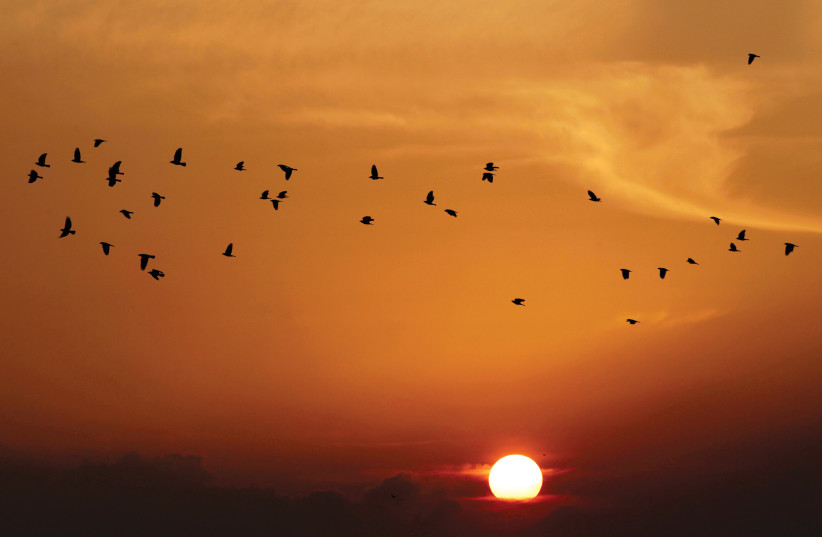As the United States gears up for the eagerly anticipated solar eclipse this Monday, the astronomical event promises not only a spectacular show for human onlookers but also a profound impact on wildlife, domestic animals, and natural processes.
Solar eclipses, though brief, have intrigued scientists and nature enthusiasts alike for their noticeable effects on animal behavior and the environment.
Recent studies and observations have shed light on these phenomena, revealing the fascinating ways in which animals, both wild and domestic, and nature respond to the temporary darkness of a solar eclipse.
One of the most comprehensive studies on this subject, published in the journal Ecology and Evolution, explores how birds and other wildlife react to the sudden change in daylight.
Researchers have observed a range of behaviors that mimic those seen at dusk—birds cease their daytime activities, some species begin their nocturnal calls, and others appear visibly confused by the abrupt transition.

"False night" phenomenon
This phenomenon, often termed as "false night," triggers a premature onset of the animals' evening routines.
Similarly, domestic animals like cats and dogs exhibit unique behaviors during solar eclipses. Pet owners have reported their animals displaying signs of restlessness or confusion. Dogs, for instance, may bark at the darkening sky or seek comfort from their owners, while cats could show a more subdued reaction, such as retreating to a familiar and safe spot to wait out the event.
These responses suggest that domestic animals are indeed aware of the environmental changes caused by the eclipse, though their reactions can vary widely based on individual temperament and sensitivity.
Marine life also exhibits unusual behavior during solar eclipses. A report by the National Oceanic and Atmospheric Administration (NOAA) details observations of zooplankton rising to the surface in a behavior typically reserved for nighttime, a response thought to be triggered by the reduced light levels.
This activity not only highlights the sensitivity of marine ecosystems to changes in light but also underscores the interconnectedness of the ocean's daily rhythms with celestial events.
The impact of solar eclipses extends beyond animal behavior to affect plant life as well. Research conducted by the University of Missouri found that certain flowers begin to close up during an eclipse, mirroring their response to the setting sun.
Additionally, a drop in temperature associated with the eclipse can lead to temporary changes in plant transpiration rates, further illustrating the profound effect these celestial occurrences have on the natural world.
While the immediate effects of a solar eclipse on wildlife, domestic animals, and natural processes are transient, these events offer valuable opportunities for scientific study. By observing the responses of animals and plants to eclipses, researchers can gain insights into the circadian rhythms that govern life on Earth.
Moreover, understanding these natural reactions enriches our appreciation for the delicate balance of our ecosystem and the myriad ways in which it is connected to the cosmos.
As we prepare to witness the spectacle of this week's solar eclipse, let us also pay homage to the natural world's remarkable capacity to respond to the rhythms of the universe, as well as the curious reactions of our beloved pets.
It's a reminder of the intricate ties that bind us to the larger web of life and the importance of preserving our planet's biodiversity. The solar eclipse is not just an astronomical event; it's a moment of deep ecological significance, a dance of shadow and light that captivates all life on Earth.
